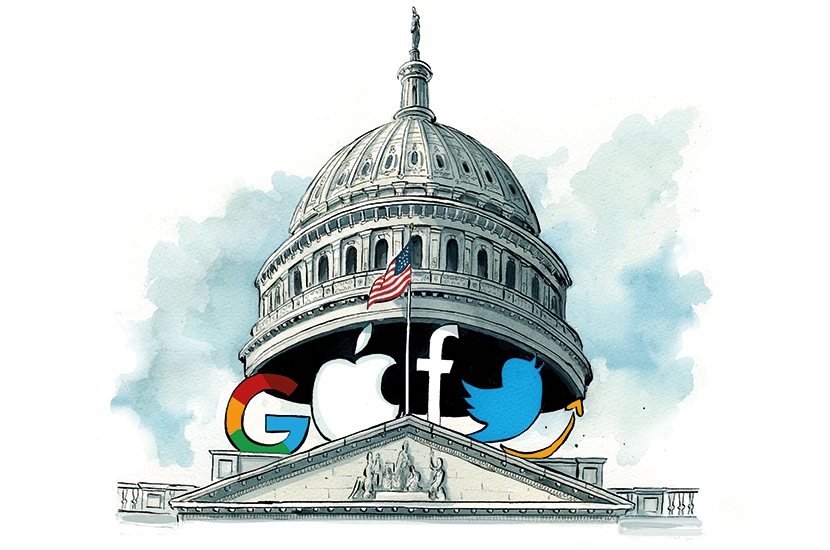Mark Zuckerberg has dubbed 2023 Meta’s “year of efficiency.” The slogan is a corporate euphemism for layoffs, of course — and not an especially subtle one. Zuckerberg’s company has parted ways with tens of thousands of employees this year. Other tech firms are following suit. Crunchbase estimates that US tech firms fired more than 118,000 employees in the first quarter of 2023.
These are lean times in Silicon Valley — and, as Joel Kotkin explains in this month’s cover story, there is more to this tale than Big Tech belt-tightening after a pandemic-era hiring spree. The Valley, Kotkin explains, is in trouble. A place that America, and the world, once looked to for an ambitious and optimistic vision of the future, has grown sclerotic. Overburdened by California regulation and dominated by monopolistic big beasts, it is not the dynamic, entrepreneurial and innovative place it once was. The collapse of Silicon Valley Bank, which ended with tech founders and their venture-capitalist backers effectively being bailed out by the government, is a recent and dramatic illustration of how things have changed.
The drift of the tech sector is a familiar business phenomenon: yesterday’s upstarts become today’s incumbents. But what Big Tech has become — and where it will go next — is of more than purely economic significance. Silicon Valley’s founding fathers made big, utopian claims about redesigning the way we live. In many ways, they have failed to live up to their own hype. Peter Thiel famously captured that disappointment when he said, a decade ago: “We wanted flying cars. Instead we got 140 characters.”
The fact that Palo Alto gave us tweets instead of sci-fi-inspired real-world engineering breakthroughs doesn’t mean its giants haven’t transformed our world. But the promise of a liberating internet and instant communication gave way to something darker: we are slipping further into our screens — and not finding the experience especially life-enhancing. More and more Americans report feeling lonely and say they have fewer friends. A mental health crisis among teenage girls has been turbocharged by the pressures of social media. Some of the smartest people in the world are paid eye-watering sums not to deliver useful innovations but to make distracting apps as compelling as possible, maximizing the dopamine delivered by every swipe and tap and rewiring our brains in the process.
;768:[300×250,336×280,320×100];0:[300×250,320×100,320×50]”]Add to this disappointing outcome of Big Tech’s political decisions and the sky darkens further. Having become the main means by which news is disseminated, social media companies decided to define the terms of the debate, in effect becoming censors for one side of the political divide.
Thanks to Elon Musk’s Twitter Files, we know the gory details of the censorship carried out by the platform in the name of “trust and safety.” The takeaway is clear: Twitter lied to the public to benefit the preferred political candidates of its employees. Other platforms have done the same. This hasn’t just been bad for America. By alienating half the country, it’s been bad for Silicon Valley too.
To argue that we have been let down by Big Tech is to risk being called a Luddite. Thankfully, however, there are more options available to us than on the one hand, unquestioning fealty to Mark Zuckerberg and whatever pops into his head, and, on the other, the contemporary equivalent of smashing up the looms.
Take TikTok. At present, Washington is debating what to do about a wildly popular Chinese-owned social media product that gives the Chinese Communist Party access to the minds (and data) of millions of Americans. There is bipartisan momentum behind a ban, not because lawmakers are boomers who don’t understand the app, but because they recognize the need to make sure the tech we use isn’t undermining the country’s security and wider interests.
Shortly before this magazine went to press, some of tech’s big beasts and top thinkers, including Elon Musk and Apple co-founder Steve Wozniak, signed an open letter calling for an immediate six-month halt on all AI research on systems more powerful than GPT-4. “Powerful AI systems should be developed only once we are confident that their effects will be positive and their risks will be manageable,” they argue. The awe-inspiring progress being made in AI technology is a reminder that tech firms are not, as some have suggested, just modern-day utility companies: stolid collectors of rents for essential services. They are still where the future is imagined and realized — and have the potential to change our lives all over again.
;768:[300×250,336×280,320×100];0:[300×250,320×100,320×50]”]There is a temptation, especially on the right, to see Silicon Valley in zero-sum terms: as political foes to be brought to heel. But America deserves better than a diminished, reined-in version of the disappointing status quo. Instead, the country needs a tech sector that is optimistic without being utopian, that respects the national interest — and that returns to its engineering roots, delivering meaningful improvements to how we live, not distracting us from what matters for an extra dime of advertising revenue. That may sound like wishful thinking, but what’s the alternative? After all, there is no off-switch.
This article was originally published in The Spectator’s May 2023 World edition.

























